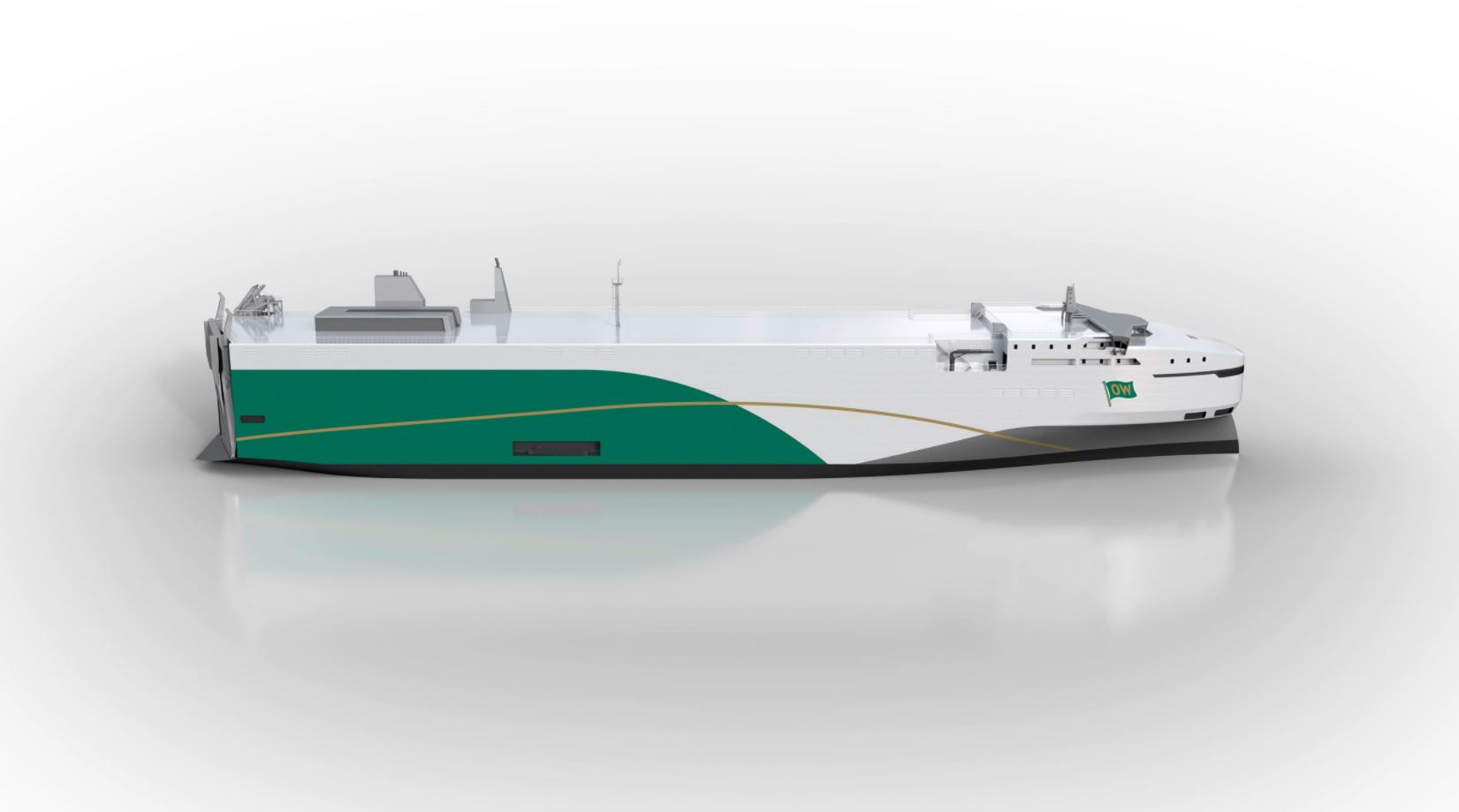German giant Volkswagen Group has chartered two additional LNG-powered car carriers as it looks to decarbonize its operations.
Volkswagen confirmed on Wednesday in a statement it has chartered two LNG-powered car carriers from Wallenius Marine.
Wallenius ordered the vessels last week at CIMC Raffles, part of the CIMC group. The 2+2+2 contract includes two firm dual-fueled car carriers but also four options.
Volkswagen already uses two LNG-powered car carriers it chartered from Siem on the trans-Atlantic route, so-called America Round Tour, from Germany’s Emden to Mexico.
In addition, it recently signed a 10-year charter deal with SFL Corporation for two new car carriers. China’s Guangzhou Shipyard International (GSI) in Nansha will build these ships.
Six LNG-powered car carriers
The new vessels put the total to six LNG-powered carriers for Volkswagen as the firm looks to replace diesel-powered ships.
The four new carriers have around 7,000 CEU (car equivalent units), which corresponds to between 4,400 and 4,700 vehicles from Volkswagen’s model mix, the German firm said.
Moreover, they should start work for Volkswagen by the end of 2023, serving the North American route between Emden and Veracruz.
On the return trip, the LNG-powered ships will transport new vehicles destined for Europe.
“The ships will be powered by 13,300 kW dual-fuel engines from MAN Energy Solutions and, in eco-speed mode, will be able to travel at speeds of 15 to 16 knots (28 to 30 km/h),” it said.
Battery power
In addition, it will also be possible to retrofit two of the new ships with battery cells to achieve further reductions in fuel consumption.
All four LNG ships will have shore power connections which means they can eliminate all local emissions in ports providing this facility, Volkswagen said.
“In line with the group’s commitment to e-mobility and climate-neutral production, the LNG fleet used by logistics represents a major contribution to making Volkswagen net carbon neutral by 2050,” Simon Motter, head of Volkswagen Group Logistics, said.
The LNG-powered car carriers require no modification to be able to run on alternative non-fossil fuels such as biogas.
“The new ships will also permit the use of non-fossil fuels in the future, thus reducing CO2 emissions even further. Our aim is to make all our transport operations – by water, road and rail – environmentally friendly, ” Motter said.

